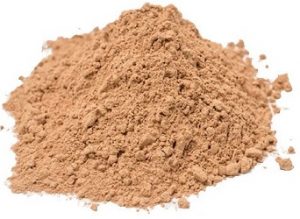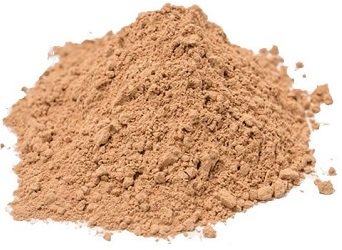Adding Montmorillonite clay to dog food is normal. Many dog food brands use it in their pet food. If you are worried about the word “clay” and want to know about What is montmorillonite clay in dog food. Here is the answer
It is used as an anti-caking agent which means it protects pet food from lump formation. Lumps decrease the quality of food and make the taste horrible. So we can say that montmorillonite in dog food is used as a “preserving agent” to ensure the quality of food.

Can dogs ingest bentonite clay
Montmorillonite clay is commonly known as bentonite clay. This is not the RX clay. The difference between both clays is that montmorillonite is hydrated sodium clay whereas RX clay is calcium clay.
As high-quality pet food uses montmorillonite clay in dog food so definitely dogs can ingest bentonite clay. However, you need to monitor the amount of clay your dog is feeding.
Before knowing how much bentonite clay is safe for dogs. You need to know what it does.
15 Benefits of bentonite Clay in dogs
Montmorillonite clay is used in Pet foods and not only as an anti-caking agent. It has other benefits too. Bentonite clay is a natural healer. In dogs, bentonite clay can do wonders.
- Bentonite clay is loaded with minerals and is highly energized. It can suck out any toxin material in the body. When a dog ingests bentonite clay, it absorbs the allergens and toxins in the dog’s body and cleans the intestinal tract.
- Internally, it heals the digestive tract by drawing out toxic substances and filling the place with its minerals.
- It improves digestion. When your dog is having diarrhea, feeding him montmorillonite clay can treat diarrhea and soothe the internal system.
- Bentonite clay treats yeast infections, allergies, and giardia in dogs.
- It improves oral hygiene and ensures good dental health in dogs.
- Bentonite clay balances the gut bacteria which solves many problems. Occasionally feeding your dog with bentonite clay treats common gut problems like vomiting, diarrhea, constipation, bloating, and gas.
- Dogs are very prone to getting salmonella and E Coli bacteria. Bentonite clay helps to fight both. Bentonite clay boosts your pet’s immunity.
- Toxins can mess up liver function. When a dog is fed montmorillonite clay, it supports healthy liver functions and helps the liver to filter out toxins from the body.
- This clay has anti-inflammatory properties and aids in healing.
- It kills parasites too.
- Externally, bentonite clay heals skin inflammation.
- It eliminates the effect of any toxic chemical like pesticides on a dog’s skin.
- Bentonite clay helps with minor scars and wounds. It stops the bleeding and prevents crust formation on a wound.
- When used for oral hygiene, bentonite clay removes plaque and keeps the mouth germ free.
- If your dog has blemishes, scars, insect bites, or rashes. Sprinkling bentonite clay on the area can save you a lot of trouble. It treats all those.
How much bentonite clay can I give my dog to treat him?
- Bentonite clay can be added to dogs’ food or water. However, adding it to water is a better option. You need to add 1/2 teaspoon in fresh water.
- After your dog has ingested the clay, feed him a lot of water.
- If your dog is on any medication, give him after 2 hours of feeding the clay.
- In diarrhea or vomiting, you can directly feed your dog bentonite clay orally in droppers too.
What are the side effects of bentonite clay in dogs?
The benefits of bentonite clay are amazing but you need to monitor how much Clay, you are giving to your dogs. Dogs can eat montmorillonite Clay but feeding them more than the required amount can cause problems too.
- An overdose of bentonite can cause stomach cramps.
- It may trigger diarrhea too.
- A large amount of bentonite clay hardens the stool and can cause constipation in dogs.
- The overdose of bentonite clay is the same as an overdose of any other drug. In some cases, bentonite poisoning was discovered in pets who consumed it in larger quantities.
- Overdose of montmorillonite can cause hypokalemia in pets. Hypokalemia could cause lethargy, seizures, paralysis, or heart attack in pets.
So Is montmorillonite clay bad for dogs? If consumed in a calculated amount then Not at all!
Montmorillonite clay in dog food
Usually, this clay is added as a “quick supplement ” other than the caking agent. As it’s a natural clay that consists of lava and minerals from the earth, it is added to pet food as a source of vitamins and minerals.
Keeping all the benefits of bentonite clay in mind, its usage in pet food is a good and healthy addition. Pet food brand nature’s logic contains montmorillonite Clay in their dog food
What are the other names for montmorillonite clay?
There are different types of montmorillonite clays. The one from the sea beds of the Mediterranean contains algae and is usually known as French Green clay. Green clay is safe for pets to consume.
It has so many benefits including its anti-bacterial properties. Green clay can be fed and applied externally to various pets like dogs, cats, horses, and livestock animals.
Moreover, bentonite clay is of three types. Its sodium bentonite, calcium bentonite, and calcium-activated sodium bentonite. Montmorillonite is sodium bentonite. However, pets can ingest all three types of clays. They have benefits when used in moderate and recommended quantities.
Does bentonite clay cause cancer in dogs?
No report or study shows bentonite clay causes cancer in dogs. Bentonite clay is proven to be effective in many cases like dogs having diarrhea or vomiting.
Why is your dog eating montmorillonite clay?
When any dog eats things, that are other than food it means he has a mineral deficiency. This condition is called Pica and exists in humans too. If your dog is eating clay, he needs vitamins and minerals in his diet.
When not to give your dog bentonite clay?
- Don’t feed your pregnant or lactating dogs, Bentonite Clay. Always talk to your vet if you can feed your dog clay or not.
- Some types of bentonite contain lead which is extremely harmful to pets.
- Don’t use it as a “regular ” remedy. If your dog has a medical problem, he needs medication to improve his health condition.
- In many studies, the effects of montmorillonite clay don’t exceed the placebo effect. So as long as it’s working for your dog it’s good to feed your dog clay. Keep in mind that montmorillonite is not a “medication ” itself
Conclusion
Montmorillonite clay is used in dog food and has a lot of benefits too. However, feed your dog this clay with the vet’s advice and recommended amount only. This clay is used as a remedy but doesn’t stand as a “medicine”.

